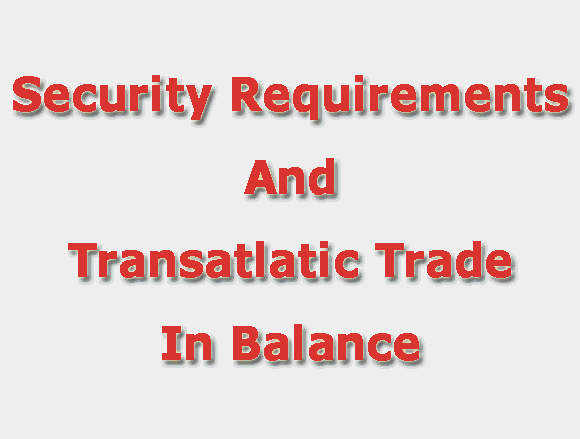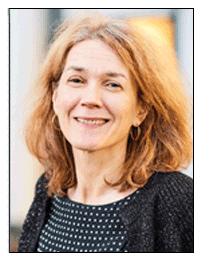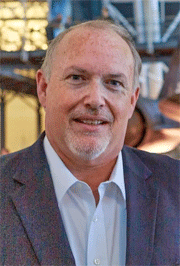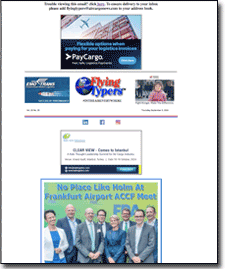 |
Anyone remembers what airports looked like
before 9/11?
At FT we do: we have seen so many
changes in the last twenty years it takes a storyteller to give you an
idea, but changes in the last fifty years are such that it is impossible
to combine it all without losing balance. And keeping a balance has not
been entirely easy for many, including Air Cargo News.
Suffice it to say that we started our publication
in 1975, i.e. just after “In 1974, a bomb caused the crash of
a TWA flight from Tel Aviv to New York, killing all 88 on board.”
This quote is taken from “The
Terrorist Threat to Transportation Targets and Preventive Measures”
by Brian Michael Jenkins, which is probably the ultimate read for those
who wish to understand what happened in the last few decades with regard
to threats and manmade horrors in the air. Reading the book, you understand
that 9/11 was not an abrupt explosion of violence, but came after a long
series of other attacks. But the magnitude, abruptness and consequence
of 9/11 was such that the whole world came to a complete halt for many
hours. It was entirely different from anything else: catastrophic yet
manmade, warlike but occurring in peace time . . . for
whatever that means.
Unlike Geoffrey and Sabiha I do not live
in New York, but the 9/11 attack is certainly one of the scenes that remain
in my brain as though I was there, albeit thousands of miles away. I was
then working in Trieste and we had a TV in the office. Few minutes after
the first plane crashed into the WTC we heard the news, we understood
what was going on and we spent the rest of the day (and the evening, and
night . . . ) watching, wailing and shivering at what was going to happen
to us all. We did not know if that was actually the end of the world,
but out thoughts touched that depth. For once now I may say the consequences,
which were hard for everyone in the world, were nonetheless less dramatic
than we had feared in those few initial moments watching the skyscrapers
tumble to the ground, after some of their occupants had resolved to jump
from their windows up there to find sure death on the hard ground of Manhattan.
It was a veritable disaster, but there and then, we were thinking it could
become worse than that. I was weeping so hard, thinking the world had
betrayed me and everything around me was about to crumble.
Everything stopped for a couple of days,
but then little by little things went back to a new normal. People were
working again, meeting, travelling and life was coming back relatively
fast, but differently, in particular if you wanted to travel by air, as
we all know.
For international trade the absorption has
been slightly more laborious, but in the end the frightening idea of “trade
coming to a halt” as you would hear in those days, in fact never
happened, and fortunately so. This does not mean that all the layers of
security requirements imposed by the legislator in the years have always
been absorbed without trouble. I started working in Brussels in 2003,
the U.S. was asking for security measures to be adopted in Europe, but
the concept had not yet filtered down into the society on this side of
the waters. Then Madrid
came in 2004 and the EU suddenly realized that it was no safe heaven as
opposed to the U.S. and security came into our lives as a powerful tidal
wave.
As for many other trade associations, that
was the moment when we started working on security legislation every day.
I was then the DG of CLECAT and all of a sudden the security agenda had
become so thick that there was a need to deal with these issues in an
organised manner. The CLECAT Security Institute was created and delegates
were sent from all over Europe to discuss the proposals that were pouring
on us from all institutions.
Twenty years have now gone and we have absorbed
waves of security measures, as triggered by novel threats and risks that
we have in the meantime detected. My view is this is not going to end,
as it is in the human nature to spend much time troubling its own genus
with imaginings that invariably create problems and sorrow. And reaction
becomes inescapable.
Since 2004 I have spent several years trying
to deal with various legislators, explaining the frail balance that needs
to be found between ensuring effective security measures and maintaining
transport and trade to remain efficient and in good condition. This was
a process that lasted many years and many layers of measures were contrived
and consequently absorbed by traders. Freight forwarders have been on
the front line all along the way, because of the very nature of their
business: aviation, navigation and road and rail related measures were
all affecting forwarders. On the other hand, one could argue that freight
forwarders are natural “trouble-shooters”, if we could use
this term to describe their role in resolving the issues and obstacles
of international trade. So finding themselves in the middle of this legislative
storm was just a fact of life for us, uncalled for, but in a way inevitable.
 Now
I am no longer on that battlefield; somebody took the DG baton and that
is none other than our friend Nicolette van der Jagt. She reacted to the
recent new provisions adopted by the U.S. and Canada with regard to EU
transport and trade with their respective countries. This is what Nicolette
had to say about the recent measures: “CLECAT, the European association
representing freight forwarders and logistics service providers, expresses
its concerns over the recent imposition of stricter air cargo security
requirements by both the U.S. Transportation Security Administration (TSA)
and Transport Canada. These new regulations, affecting Europe- and CIS-based
air cargo shippers, were implemented suddenly creating operational challenges
and disruptions across the air freight supply chain. Now
I am no longer on that battlefield; somebody took the DG baton and that
is none other than our friend Nicolette van der Jagt. She reacted to the
recent new provisions adopted by the U.S. and Canada with regard to EU
transport and trade with their respective countries. This is what Nicolette
had to say about the recent measures: “CLECAT, the European association
representing freight forwarders and logistics service providers, expresses
its concerns over the recent imposition of stricter air cargo security
requirements by both the U.S. Transportation Security Administration (TSA)
and Transport Canada. These new regulations, affecting Europe- and CIS-based
air cargo shippers, were implemented suddenly creating operational challenges
and disruptions across the air freight supply chain.
“The sudden nature of these changes
has placed unnecessary strain on the industry. The introduction of new
requirements without adequate communication or guidance has left freight
forwarders in a difficult position. CLECAT calls for greater engagement
with economic operators in the development and implementation of security
directives, as this would ensure that necessary adjustments are made without
causing undue disruption to international trade.
“Furthermore, CLECAT stresses the
need for harmonization of data  requirements
and filing processes of the PLACI programmes at global level to streamline
operations for cargo operators dealing with multiple regimes. Any necessary
changes should be thoroughly analysed in consultation with EOs to avoid
the operational problems currently being experienced. The inconsistent
approaches being taken by U.S. and Canadian authorities complicate compliance
for companies operating in multiple markets. While security is paramount,
any measures introduced should be both practical and proportional to the
risk involved, avoiding unnecessary administrative burdens that hinder
global trade. CLECAT urges the European Commission to take a proactive
role in addressing these concerns with its U.S. counterparts at the upcoming
EU-U.S. Transportation Security Cooperation Group meeting.” requirements
and filing processes of the PLACI programmes at global level to streamline
operations for cargo operators dealing with multiple regimes. Any necessary
changes should be thoroughly analysed in consultation with EOs to avoid
the operational problems currently being experienced. The inconsistent
approaches being taken by U.S. and Canadian authorities complicate compliance
for companies operating in multiple markets. While security is paramount,
any measures introduced should be both practical and proportional to the
risk involved, avoiding unnecessary administrative burdens that hinder
global trade. CLECAT urges the European Commission to take a proactive
role in addressing these concerns with its U.S. counterparts at the upcoming
EU-U.S. Transportation Security Cooperation Group meeting.”
In my Brussels years, and even more so in
Zurich, I have learnt the lesson that one should not listen to one voice
only, in particular if we are talking of neighbouring (and at times differing)
interests, as those represented by the EU and the US. Both speak the same
language, but there is a lot to learn on the differences if you wish to
read the fine print. This is one of those moments in my view.
 I
reached out to a good friend of ours, Michael White. Do I need to introduce
Michael to any of you readers? Mike is good friend of the FT
and, among many other top level concerns, he has been the main engine
of CNS in the USA for many years. This is what Mike told us about the
new measures: “The recent developments in Europe and North America,
requiring companies to provide more comprehensive data on shipments, were
a necessary step toward strengthening air cargo security. While the initial
ACAS data was limited, the introduction of additional data elements significantly
enhances safety measures for air transport. To further elevate security,
the implementation of the electronic consignment security declaration
(eCSD) is critical, allowing more detailed information to move seamlessly
through the supply chain. I
reached out to a good friend of ours, Michael White. Do I need to introduce
Michael to any of you readers? Mike is good friend of the FT
and, among many other top level concerns, he has been the main engine
of CNS in the USA for many years. This is what Mike told us about the
new measures: “The recent developments in Europe and North America,
requiring companies to provide more comprehensive data on shipments, were
a necessary step toward strengthening air cargo security. While the initial
ACAS data was limited, the introduction of additional data elements significantly
enhances safety measures for air transport. To further elevate security,
the implementation of the electronic consignment security declaration
(eCSD) is critical, allowing more detailed information to move seamlessly
through the supply chain.
“The technology is now available to
achieve what should have been done years ago. Leveraging tools like APIs,
unified records, block-chain, and other data sources is key to ensuring
efficiency and security. Moreover, the recent scrutiny on goods descriptions,
coupled with the U.S. reassessing de minimis values for e-commerce shipments,
highlights the growing pressure on governments to adapt. This ensures
global trade can continue with minimal delays, despite the evolving challenges
of e-commerce.”
You could say it is just a question of balance,
which is what CLECAT expects. Should we just stop here? Maybe we can offer
our readers a few more lines, just contemplating the power of these evocative
words.
A question of balance, other than being
the title of a prog
LP published by the Moody Blues in 1970 is a pretty common cliché,
but in the end it is a fact of life and we must live with it. If you cannot
keep balance you often fall to extremes that meet hazards echoing one
another. In other words, it is nobody’s interest to put measures
in place that could just create obstacles, hence doing a favour to those
who would like to thwart progress and peaceful trade.
Getting back to music, if you listen to
“The
Dream”, published one year earlier and watch the video, which
today looks historical, yet evocative, you realize we live on a small
fragment of the universe and we are floating in the vacuum just for the
power which is balancing opposing forces. It is an awesome concept, if
you think of it and you feel so small, so weak and defenceless. This should
motivate humankind to work together, cooperate to preserve this fail balance
that keeps us all alive. Yet we are industrious at creating a lot of trouble,
whilst we are busy finding solutions to the trouble we are inflicting
on ourselves.
Maybe it is indeed just a question of balance:
not a balance that we have lost, but the balance we have never achieved.
Coming back to the main subject of this tale, which ignited this meandering
stream of conscience, we all need to think how many more layers of security
do we wish to add in our trade. We should decide how much of these security
measures traders can absorb without trouble, making sure security is appropriate
to secure trade flows without distorting them.
We all face risks and these become more
evident as modern society brings unexpected immediateness. On another
tone, what has been achieved by waging threats and terror? Not much it
seems to me.
I am not sure that I have answered the question
of balance, but in security somebody did and we could listen to her: “Any
measures introduced should be both practical and proportional to the risk
involved,” as CLECAT advocates. It makes sense, doesn’t it?
Thank you, Nicolette.
Marco Sorgetti
Editor's Note: We welcome comments from our readers and logistics
professionals.
|




 Vol.
23 No. 35
Vol.
23 No. 35 Vol.
23 No. 37
Vol.
23 No. 37